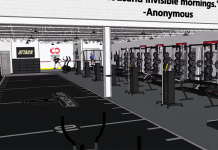We all need to ‘save face’ sometimes; yes I mean your face in a literal sense. Although many cosmetics claim they can stop or reverse aging, it’s inevitable. From a medical standpoint, you can absolutely slow down the visual effects of aging with a little effort. Cosmetic products and treatments can get costly, so how do you know what’s worth it?
The very first facet to think about is where you’re getting your information.
Drug stores and marketing campaigns make false claims they can’t back up with science because they don’t legally need to. Pharmaceutical grade skincare products (like the one’s you’d find at the dermatologist, plastic surgeon’s office, or med-spa) must have scientific evidence paralleling the claims they make, and they are closely monitored by the FDA.
Next time you see a Lancôme commercial, think of this article. Or even this one from FOX2NEWS in early September and beware next time you hit a department store! Below are some tips, treatments, and products that are proven to slow the signs of aging.
- Peels: there are different types of peels, all exfoliate dead skin cells which can cause flaking for up to five days. Peels use salicylic and lactic acids along with anti-inflammatory agents that help improve sun damage, wrinkles, acne, and reduce the appearance of pore size. A medical aesthetician can suggest (usually a few treatments within a 3 month period depending on your budget) which peel will be best for your skin type, condition, and goals.
- Retinol: an active ingredient in Vitamin A that increases cell turnover and production. Retinols are recommended for anti-aging maintenance, improving the appearance of lines, wrinkles, mottled pigmentation, skin texture, tone, and hydration. “Everyone over 38 should be using a retinol” says Dr. Stefani. This crème should be used at night, as the body rejuvenates while you sleep.
-
Nutrition: how you look on the outside truly begins with caring for your body on the inside. Research proves that eating the right foods will help in sun and wrinkle protection while hydrating the skin.
- Vitamin C: keeps collagen strong and resilient. Can be found in leafy greens, lemons, strawberries, red peppers, and kiwi.
- Vitamin A: increases cell turnover and production (also where our retinols are found). Found in vegetables such as spinach and broccoli.
- Proteins: required to repair skin cells and produce enzymes that help give your skin a glow. Plant proteins can be found in soybeans, seeds, and nuts while animal proteins can be found in fish, meat, eggs, and poultry.
- Omega-3’s: fight inflammation and enhances the effects of sunscreen. Found in shellfish, salmon, and tuna.
- Regular Maintenance: skincare is a continual process that should be allotted time, effort, and patience. Your routine should consist of cleansing, moisturizing, treating, and protecting with products that have high active ingredients such as those listed above. We all want a ‘quick fix’ but those who maintain their skin regularly will see the most benefits.
- Sunscreen: the last step in daily maintenance is protection… i.e. SUNSCREEN. Did you know 80% of skin aging is from the sun’s UVA rays? These rays penetrate deep layers of the skin causing wrinkles, sagging skin, sun spots, and skin cancer. SPF 15 (Sun Protection Factor) should be applied every day, regardless of the weather and SPF 30 should be applied for days where you will be in direct sunlight.
- Quit Smoking: if the risks of lung cancer, emphysema, and stroke aren’t enough to get you to quit smoking, how about all the wrinkles you WILL get? Scientific research has proven that smoking makes the skin weak and tired, it slows the healing of wounds, yellows the skin, and decreases the oxygen available to your skin, preventing it from breathing.
- Relaxation: when you’re stressed; your skin shows it. It is said that stress lowers your body’s ability to fight off free radicals, harmful irritants, and infections. Stress can flare up psoriasis, rosacea, and acne. Plus exhaustion and lack of sleep creates dark circles and bags under the eyes. Getting a good amount of sleep is always important but you may want to get those extra hours during stressful stints so your skin has time to rejuvenate.
- This blog was authored by Jacky LaFrance












